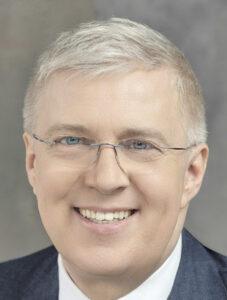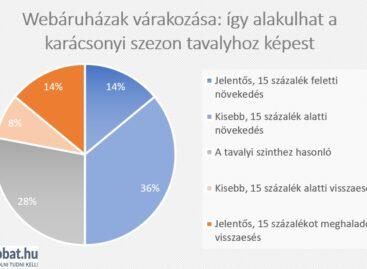László Krisán: “There won’t be positive trends until consumer confidence strengthens”
An interview with László Krisán, the CEO of KAVOSZ Zrt. and the Hungarian representative of EuroCommerce’s board of directors

This article is available for reading in Trade magazin 2023/6-7.

László Krisán
CEO
KAVOSZ
– How did retail perform last year?
– Retail volume sales were up more than 5% in 2022, but if we look behind the numbers, what we see is that sales in food and food type retail dropped 1.5%, while in non-food retail sales grew by 5.8%, and motor fuel sales jumped 24.2%. As the inflation has been growing fast, people started buying less. The government has reacted to this situation and the rising energy costs by granting additional transfers to the people (income tax refund, 13th-month old age pension, etc.).
– What about the performance of companies in the FMCG sector?
– There were lots of challenges: rapidly growing energy prices, the price cap on certain food products, product shortages and business distrust. Retail turnover is going downhill, and this is true for grocery retail, non-food categories and motor fuels alike.
– How did the number of businesses change?
– By mid-2021 there were 5,800 fewer stores than in 2019, in part due to the problems caused by the coronavirus pandemic, but this negative process had started already before the pandemic and it isn’t likely to take a U-turn – it is enough to think of the rising raw material prices, high inflation, the lack of workforce, and the growing wage costs.
– How bad was the workforce situation?
– It has been present in retail for years, and this forces businesses to keep coming up with new solutions to the problem. This is the reason why the number of workforce-saving IT solutions is growing, and this process is going to speed up in the future.
– What are the latest challenges for businesses?
– There are structural problems in the sector, such as the lack of digitalisation and automation, plus there are sustainability issues as well. These are closely connected to e-commerce trends and the opportunities created by big data.
– Currently which elements form part of the KAVOSZ Széchenyi Card Programme?
– Within the framework of the Széchenyi Card Programme MAX+, retail businesses have access to the following products: Széchenyi Card Current Account Loan MAX+, which offers a maximum HUF 250m free-use loan, a fixed 5% interest rate and 1-, 2-, or 3-year repayment periods. Széchenyi Liquidity Loan MAX+ is a HUF 250m working capital loan, with a fixed 5% interest rate and 3-year repayment. Széchenyi Microloan MAX+ targets micro-businesses and SMEs, with loans up to HUF 500m, a fixed 5% interest rate and up to 10-year repayment.

– In what other ways do you represent the interests of companies?
– We have a strong presence in EuroCommerce Bruxelles, the strongest European lobby organisation for retail and wholesale, which unites the representatives of 27 national associations and the biggest global retailers. I have been a member of the board of director’s since Hungary’s accession to the European Union. The main task of EuroCommerce is to represent the interests of the sector in the European Commission or any other EU body, when they are dealing with topics or processes which have something to do with retail, or are drafting new regulations for the retail sector.
– How do you see the future?
– There are lots of uncertainties about the future, but perhaps the most important question is how the purchasing power of consumers will develop. This depends on this year’s eventual wage increases and the inflationary trends. I am convinced that the inflation will start to slow down already in the first summer month; there won’t be positive trends until consumer confidence strengthens, but I think the second half of the year will bring consolidation. //
Related news
Online retailers are much more optimistic about Christmas than last year
The renewed rise in real wages is likely to be…
Read more >This is how Hungarians shopped for Christmas this year
Christmas is one of the most cherished times of the…
Read more >Online shopping scams: a cautionary case about Kockabolygó and Kockaváros
Online shopping has become increasingly challenging in recent years due…
Read more >Related news
Recognition of Consumer Protection Excellence: Honoring the Best of 2024
This year’s outstanding consumer protection officers and special award recipients…
Read more >The Joy of Giving! – SPAR stores collect non-perishable food for people in need
The Hungarian Maltese Charity Service and SPAR Hungary have launched…
Read more >KSH: industrial production decreased by 0.2 percent in October
In October, the volume of industrial production fell by 0.2…
Read more >






